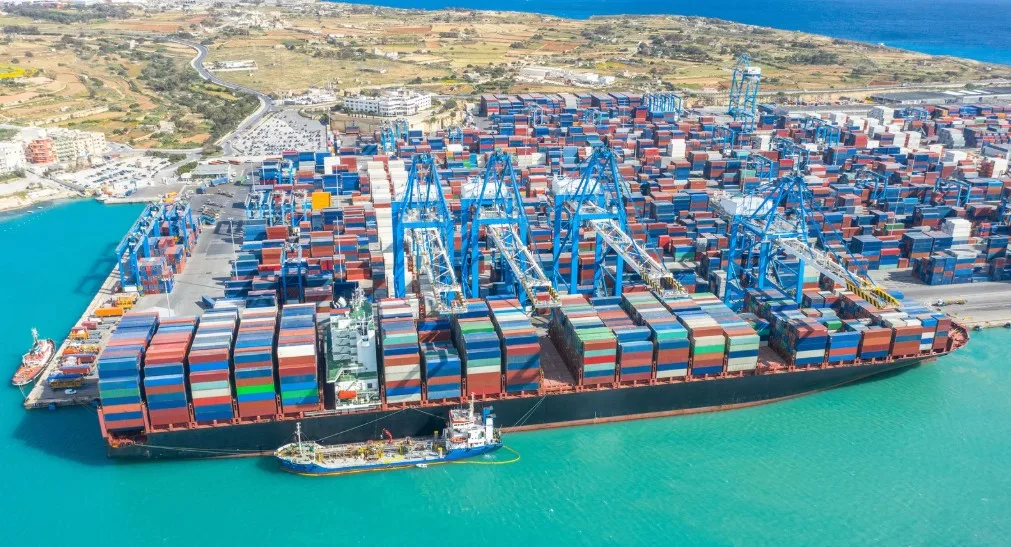What would it take to transform the UK’s coastal towns and cities into thriving hubs of innovation, green technology, and skilled employment? Could the shipping industry become a key driver of the country’s transition to net zero? The UK government, together with private investors, has offered a bold answer a £1.1 billion funding package designed to reshape the maritime sector, strengthen supply chains, and create thousands of jobs.
Announced on the opening day of London International Shipping Week (LISW) on 15 September 2025, this joint government and industry investment is set to unlock economic growth while dramatically reducing carbon emissions from shipping.
How Will the £1.1 Billion Investment Be Distributed?

The funding combines £448 million of government support with £700 million from private investors, creating one of the largest maritime funding packages in recent years. The money will be directed into two main streams:
| Funding Source | Amount | Focus Area |
| Government (Public) | £448 million | Clean maritime technologies, UK SHORE programme, R&D on electric, hydrogen, ammonia, and wind-powered shipping |
| Industry (Private) | £700 million | Port infrastructure upgrades, shore power systems, innovation in engineering and construction, job creation in coastal communities |
This blend of public and private investment is designed to leverage maximum impact, ensuring that businesses and academia work together to develop real-life solutions that reduce emissions and create long-term growth.
What Is the UK SHORE Programme and Why Does It Matter?
The UK SHORE (Shipping Office for Reducing Emissions) programme sits at the heart of the government’s maritime decarbonisation strategy. This initiative funds innovative projects that create tangible outcomes, ranging from zero-emission port infrastructure to cutting-edge propulsion technologies.
Past investments have already supported over 200 projects, delivering £240 million in funding and sustaining around 750 jobs. Examples include:
- Electric chargepoints at major ports installed by Aqua Superpower, enabling vessels to recharge with zero emissions
- Waterwhelm’s technology that converts recycled wastewater into hydrogen to generate electricity
- Smart Green Shipping’s FastRig wingsails, capable of reducing fuel consumption and emissions by up to 40%
With the latest funding round, UK SHORE will continue to expand, supporting even more projects that are critical for achieving the UK’s net zero target by 2050.
Which Projects Will Benefit from the Funding?

This investment is not just theoretical it is already being put to work across the UK.
One notable example is Cammell Laird dry dock in Birkenhead, Liverpool, where £3.6 million of UK SHORE funding has been matched by an equal amount of private investment to install a zero-emission electric shore power system.
This system will allow ships to plug into the local grid and operate without emissions while docked, similar to how electric vehicles recharge. Once fully operational, the system is projected to save the equivalent of the annual fuel consumption of 20,000 cars and support 15 jobs in the process.
Private investors are also playing a key role. Peel Ports has pledged £300 million to upgrade Liverpool, Hunterston, and Great Yarmouth ports.
NatPower Marine has committed £250 million to roll out shore power infrastructure nationwide, with the potential to create over 2,000 skilled jobs. The Port of Tyne is investing £150 million in its North Side development, which could generate up to 12,000 jobs in offshore wind and advanced manufacturing.
How Will Coastal Communities Benefit?
The funding is more than an investment in infrastructure it is an investment in people and place. Coastal towns and cities have historically faced economic challenges, with limited access to high-skilled, high-wage jobs. This initiative aims to change that by:
- Creating thousands of engineering, construction, and green technology roles
- Supporting small and medium-sized enterprises (SMEs) through supply chain opportunities
- Encouraging innovation that attracts further private investment into these regions
The government is also revising the national policy statement for ports, streamlining planning approvals and reducing costs for port operators seeking to expand. This means faster project delivery, quicker job creation, and more economic activity in areas that need it most.
How Will This Investment Accelerate Decarbonisation?

Decarbonising the maritime sector is critical to meeting the UK’s climate goals. Shipping accounts for a significant share of global emissions, and ports are often located near densely populated areas where air quality is a concern.
The nearly half a billion pounds of public funding will:
- Support research into hydrogen, methanol, ammonia, and other clean fuels
- Expand the network of shore-side power stations, enabling ships to cut engines while in port
- Fund demonstration projects that can be scaled nationally and internationally
Projects like Aqua Superpower’s marine charging network are proof of concept. Their 75 kW chargers, installed with UK SHORE support, are estimated to cut 2,800 tonnes of CO₂ per year and have helped the company expand to 59 sites across Europe and the US.
What Role Does London International Shipping Week Play?
LISW is one of the biggest events in the global maritime calendar, and the government is using it as a platform to showcase the UK’s commitment to clean shipping. Over the week, ministers, investors, and industry leaders are discussing new opportunities for growth, innovation, and skills development.
To mark the opening, Local Transport Minister Simon Lightwood rang the bell at the London Stock Exchange, while Transport Secretary Heidi Alexander MP emphasised that this investment is a cornerstone of the government’s Plan for Change.
Why Should Startups and SMEs Pay Attention?

For startups and SMEs, this is a unique opportunity to plug into a rapidly growing sector. The maritime decarbonisation effort is opening doors for new technology providers, engineering firms, and supply chain businesses.
Funding competitions such as the Clean Maritime Demonstration Competition (CMDC4) are explicitly designed to give smaller companies a chance to pilot innovative solutions with government backing.
As the UK positions itself as a global leader in clean shipping, early adopters and innovators will have the chance to secure contracts, build partnerships, and scale their operations both nationally and internationally.
Final Thoughts
The government’s £1.1 billion maritime funding package is more than a financial boost it is a statement of intent. By bringing together public investment, private capital, and world-class innovation, the UK is charting a path toward net zero shipping while revitalising its coastal communities.
For entrepreneurs, engineers, and innovators, the message is clear: the maritime sector is ready for transformation, and now is the time to get involved.
FAQs on the £1.1 Billion Maritime Investment
What is the total value of the new maritime investment?
The investment is worth over £1.1 billion, combining £448 million of public funding with £700 million from private investors.
What is the main goal of this funding?
Its primary aim is to reduce carbon emissions from UK shipping, boost port infrastructure, and create skilled jobs in coastal communities.
What is the UK SHORE programme?
UK SHORE funds research and development of clean maritime technologies like hydrogen fuels, electric shore power, and wind-assisted propulsion.
Which regions will benefit from this investment?
Ports across the UK, including Liverpool, Hunterston, Great Yarmouth, and Tyne, will receive funding, creating local jobs and supporting coastal growth.
How will this help the UK reach net zero?
The investment supports low-carbon fuels, zero-emission port systems, and green technology projects that will reduce shipping-related CO₂ emissions.
Are there opportunities for startups and SMEs?
Yes. SMEs can apply for funding through programmes like the Clean Maritime Demonstration Competition to develop and test innovative green solutions.
What is London International Shipping Week?
LISW is a global event where government, investors, and industry leaders meet to discuss maritime innovation, trade, and clean energy solutions.




